Cliff Curtis as Keōua in Chief of War surpasses everything on another plane. Set in 18th-century Hawaiʻi, the series charted the turbulent rise to power of Kamehameha, but it is Keōua who oftentimes steals the spotlight with his fire, pride, and unpredictable choices.
Curtis renders the complexity of a man who feels cheated out of destiny and must risk absolutely everything for power, respect, and legacy. From raw vulnerability to shocking violence, Keōua exceeds merely being a rival-he is the heartbeat of resistance.
These unforgettable moments reveal not only the genius of the character but also the layers that Curtis brought forth in making Keōua one of his most extraordinary roles so far.
These 7 Keōua moments from Chief of War reflect the brilliance of Cliff Curtis
1. The tooth-cutting scene
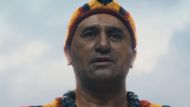
Perhaps the strongest Keōua moment is in Episode 4 when he learns that his dad chose Kamehameha over him. Rather than remaining mute, Keōua breaks his face, extracts his own tooth, and holds it up for all to see. The startling move is not about the pain but about issuing a warning that there will be more blood forthcoming, but not his.
Cliff Curtis performs this scene with raw emotion, blending heartbreak, anger, and pride. It reveals Keōua's hot-tempered nature and his unwillingness to be ignored. The moment is both scary and very human at the same time.
2. Keōua’s rage at Kamehameha’s appointment
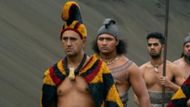
As Kamehameha is selected as the War God, Keōua is unable to conceal his wrath. He believes himself cheated out of his rightful heritage and betrayed by his own kin. Rather than quiet resignation, his feelings bubble over into jealousy and wrath. Cliff Curtis makes this moment indelible with his expressive eyes and powerful presence, capturing a man caught between duty and ambition.
This is a catharsis where Keōua moves from being a frustrated son to being an adversary willing to challenge all. Curtis's balancing of hurt with anger makes Keōua both dangerous and pitiable, vindicating his place as the essence of the drama.
3. Burning the food storage
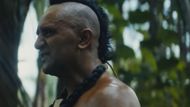
In Episodes 5 and 6, Keōua demonstrates his brazenness by having Kohala's food cache burned. It is not purely an angry act but also a strategic move to demoralize his opponents and test their mettle. Cliff Curtis portrays Keōua with cutting resolve, demonstrating how he employs fear and strategy in tandem. The conflagration becomes more than annihilation; it is a sign of rebellion and strength.
Audiences catch a glimpse of Keōua's darker nature, a man willing to risk everything to demonstrate his power. Curtis's acting takes this scene and marks it as a risky yet compelling insight into his leadership.
4. Rejecting the peace mission
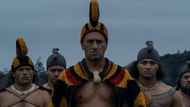
When Kamehameha presents a new law of peace, there is hope that the violence will cease. But Keōua will not accept it. He hears, yet rather than compromise, he insists the God of War be returned. This choice is indicative of his stubborn pride and aspirations for his future. Cliff Curtis portrays this refusal with subtle strength, displaying Keōua as a leader who refuses to give in, even if there is peace to be had.
His restrained anger shows his strength as much as his hot-headed outbursts. This scene confirms that Curtis can make silence as powerful as violence, providing Keōua with amazing depth as a character.
5. Killing Nāhi at the Niu Grove

In Episode 8, Keōua takes the sacred Niu Grove by force and mercilessly slays Nāhi with a rock. The moment is gruesome and upsetting, but it also reveals how far Keōua will go. Cliff Curtis doesn't merely play it as cruelty; he imbues Keōua with tragic inevitability, as if war consumed him.
How Curtis vacillates between anger and cold calculation makes this scene unforgettable. The murder also sends a message to all that Keōua is not only an opponent but also a threat in person. It's one of the darkest but most compelling points of the series.
6. The volcanic omen
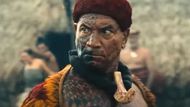
As the volcano erupts in Episode 8, everyone interprets it as a sign of the gods that is in Keōua's favor. For Keōua, it is a turning point, an affirmation that his war is sanctioned by the gods. Cliff Curtis conveys the pride and awe that Keōua experiences, making a natural phenomenon into a moment of spiritual transformation.
This scene is an example of how Curtis infuses the performance with cultural richness and demonstrates how religion, politics, and aspiration are interconnected. It's a visceral reminder of Keōua's power and Curtis's acting greatness.
7. Betrayal of the law of peace
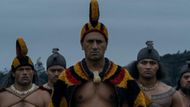
Even with an opportunity for peace, Keōua will not accommodate. He allies with King Kahekili, flouting the new law and anticipating further conflict. The treachery demonstrates Keōua's ambition as well as his unwillingness to relinquish authority. Cliff Curtis conveys the moment with acute intensity, indicating that Keōua feels he is meant for greatness.
What Curtis does so well is that he blends pride with desperation, so Keōua is this hero and this villain all at once. This escalates the story towards full-scale conflict and reminds us why Curtis is ideal for this role.
Keōua's perilous journey as Chief of War is defined by anger, betrayal, and ambition, but Keōua transcends the standard villainy with his portrayal by Cliff Curtis. Each scene exhumes more shades of hurt, pride, and irony, and shows that Curtis possesses the unique ability to lend some depth to very complicated characters.
Moments like this remind me why Curtis continues to rank among the greatest actors working today, leaving audiences hungry for whatever scene is his to command next.
Also Read: What happened to Prince Kūpule in Chief of War Episode 8? Details explored
